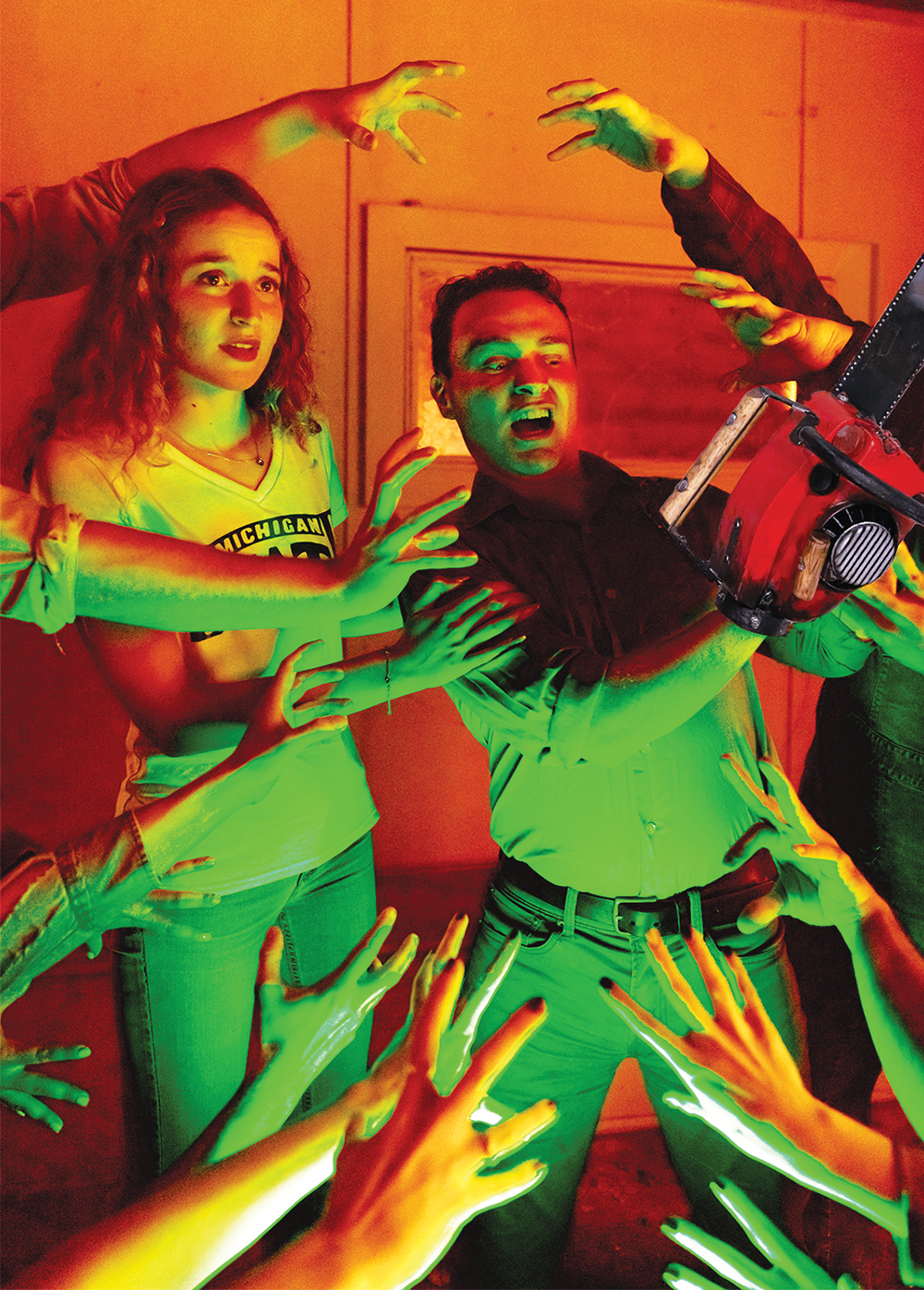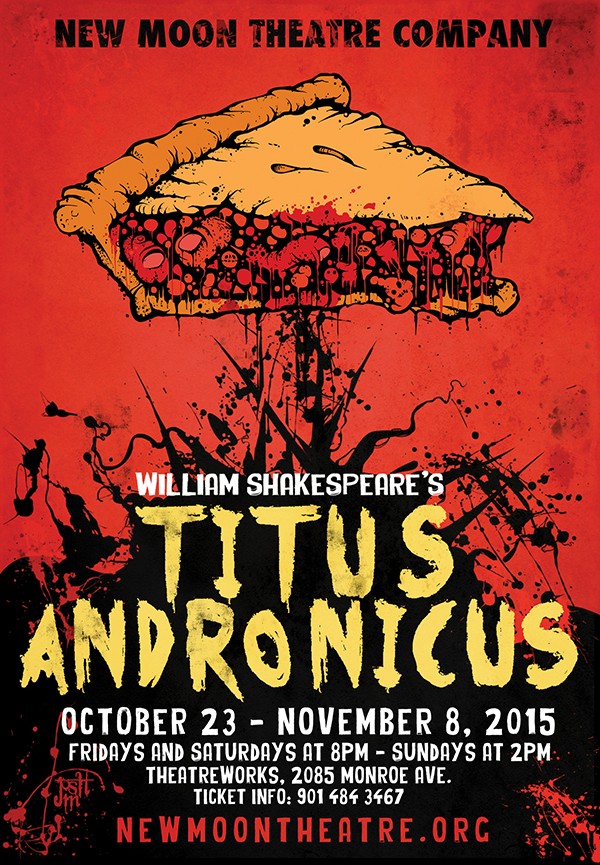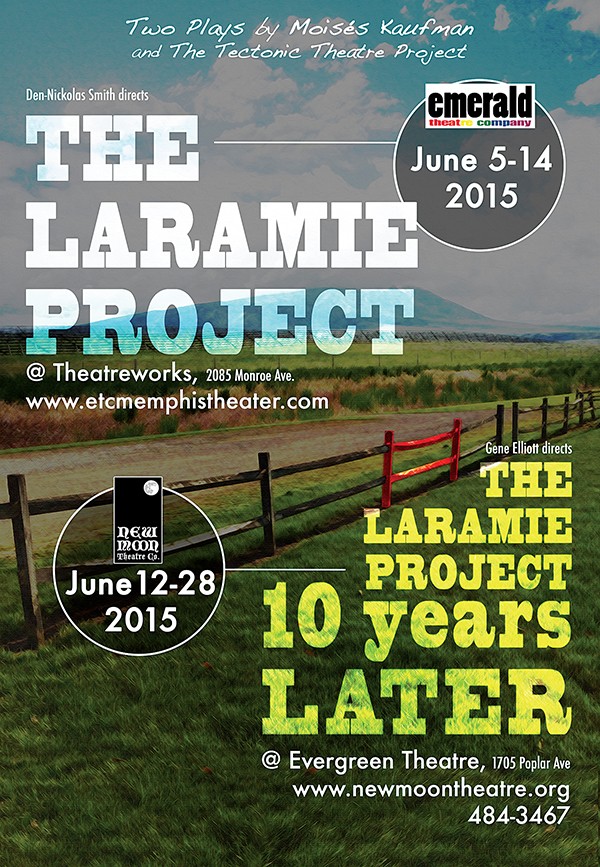We may be in a national blood shortage (donate if you can!), but the folks with New Moon Theatre Company have a surplus of blood — fake blood, that is — and they’re ready to shower their audience with it.
What exactly calls for blood to run on the stage of New Moon’s latest production? Well, it’s all for Evil Dead: The Musical. Taking elements from the cult classic films Evil Dead, Evil Dead 2, and Army of Darkness, the show spins the tale of five college students going to an abandoned cabin and accidentally unleashing an evil force that turns them all into demons. But, as director Ann Marie Hall says, “In this case, they’re all singing and dancing” — to songs like “All the Men in My Life Keep Getting Killed by Candarian Demons” and “What the Fuck Was That.”
“‘What the fuck was that? Your girlfriend has turned into a demon,’” chirps Hall during our phone call. “‘What the fuck was that? Your sister’s a demon, too.’ And then two of the main guys do a tango.”
Hall adds, “It’s kind of stupid and funny, just the kind of way I like my show. Stupid and funny.” Indeed, Hall has acted in and directed a number of comedic shows, most recently having directed Theatre Memphis’ You Can’t Take It With You.
“I like to laugh. I like to make people laugh. That’s my favorite thing — hearing people laugh,” she says. “I will try to find the comedy wherever it is. And sometimes it’s just in the tragedy. So when somebody gets their head lobbed off or you have to kill your girlfriend with an axe, then chop it up later with a chain saw, that’s terrible, but sometimes it’s funny.”
So when presented the opportunity to direct New Moon’s Evil Dead, Hall jumped at it immediately. She had seen the show years ago in Charleston and loved it — especially the Rocky Horror-like moments where the cast splatters the audience with blood in the midst of their violent throes. “I’d been trying to get somebody in town to produce the show for ages,” she says. “I’m so excited for the blood part.”
For those who are also excited for the blood part, the theater will have a special section reserved: the Splash Zone. These seats will quite literally be in the middle of the action, practically on the stage. “Your chairs are on the floor with the cast,” Hall explains. “They are dancing right up to your face.”
Tickets for the Splash Zone cost $35 and include a commemorative T-shirt. For those not wanting any blood on them (couldn’t imagine why), non-Splash Zone tickets are available for $30. Performances run Thursdays at 7:30 p.m., Fridays and Saturdays at 8 p.m., and Sundays at 2 p.m. through November 13th. Evil Dead is not recommended for those under 17. For more information or to buy tickets, call 901-484-3467 or visit newmoontheatre.org.
Evil Dead: The Musical, Theatre works, Friday, October 28-November 13, $25-$35.



